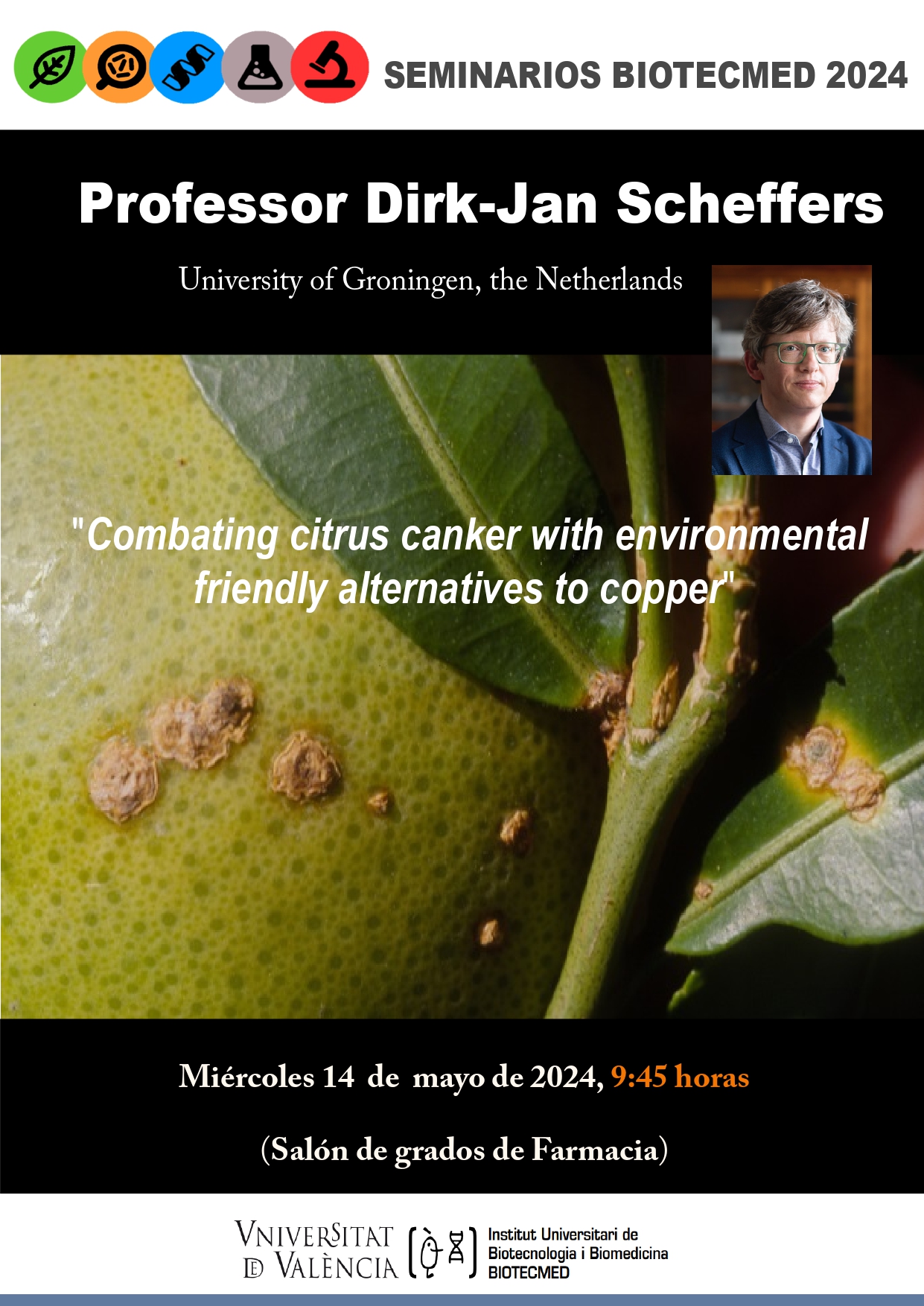
Este martes dia 14 de mayo tenemos una charla EXTRA del INSITTUTO.
Nos visita un investigador invitato por Ismael Mingarro, el Profesor Dirk-Jan Scheffers de la University of Groningen (Holanda), que impartirá la charla titulada:
"Combating citrus canker with environmental friendly alternatives to copper"
Será a las 9:45h al SALÓN DE GRADOS DE FARMÀCIA
Resúmen de la charla
Abstract
Brazil is the major producer of orange juice concentrate and responsible for over half the juice consumed worldwide. The sweet orange juice industry is constantly threatened by diseases, such as citrus canker, that require the use of toxic metals (e.g. copper) and other pesticides to enable profitable production. The reduction of pesticide use is of great importance for a sustainable citriculture, as well as for the production of other crops. Citrus canker is a disease that affects all the commercially important varieties of citrus, and is endemic in all major citrus producing regions in the world except Europe. The disease affects trees and fruit, and causes great economic losses. The causal agent of citrus canker is the bacterial pathogen Xanthomonas citri (Xac). To devise alternatives for the control of Xac, our lab in collaboration with groups from Brazil and the Netherlands, aim to synthesize and test environmental-friendly compounds, less toxic than copper, that are able to protect citrus plants from the infection by Xac. I will discuss our results on gallic acid derivatives, which have potent anti-Xac action by targeting the bacterial membrane and the division septum in a concentration dependent manner. By testing other phenolic compounds, our work revealed the key features required for good anti-Xac activity, and we studied the efficacy of some of the compounds in green house and a small-scale field test. Our current efforts focus on the delivery of the compounds, looking at controlled substance release and adherence to the plants. We also look at the source of our chemical building blocks, which can be derived, at least in part, from agricultural waste products. Finally, we are performing additional toxicity studies to see how our products affect the soil microbiome.
Adjunto el cartel
Después habrá café como siempre en el bar de Farmacia
.png)






